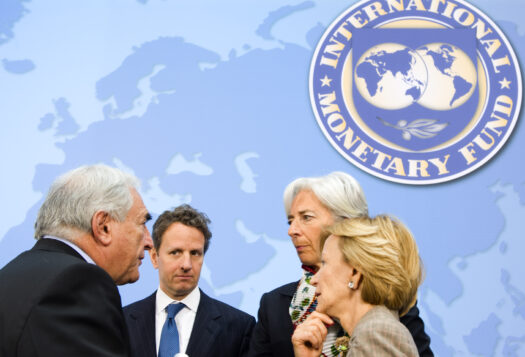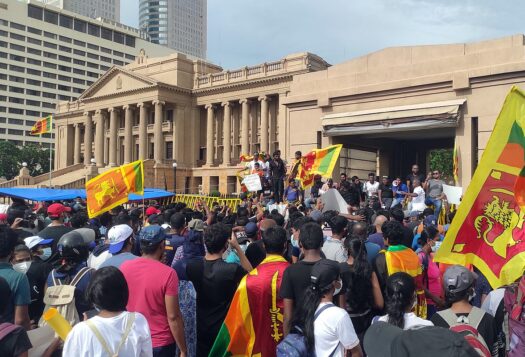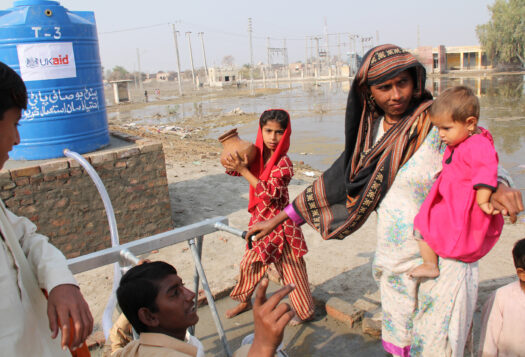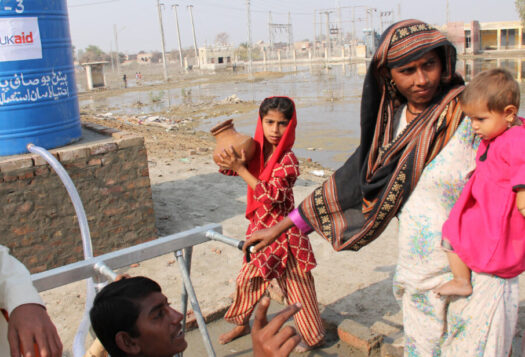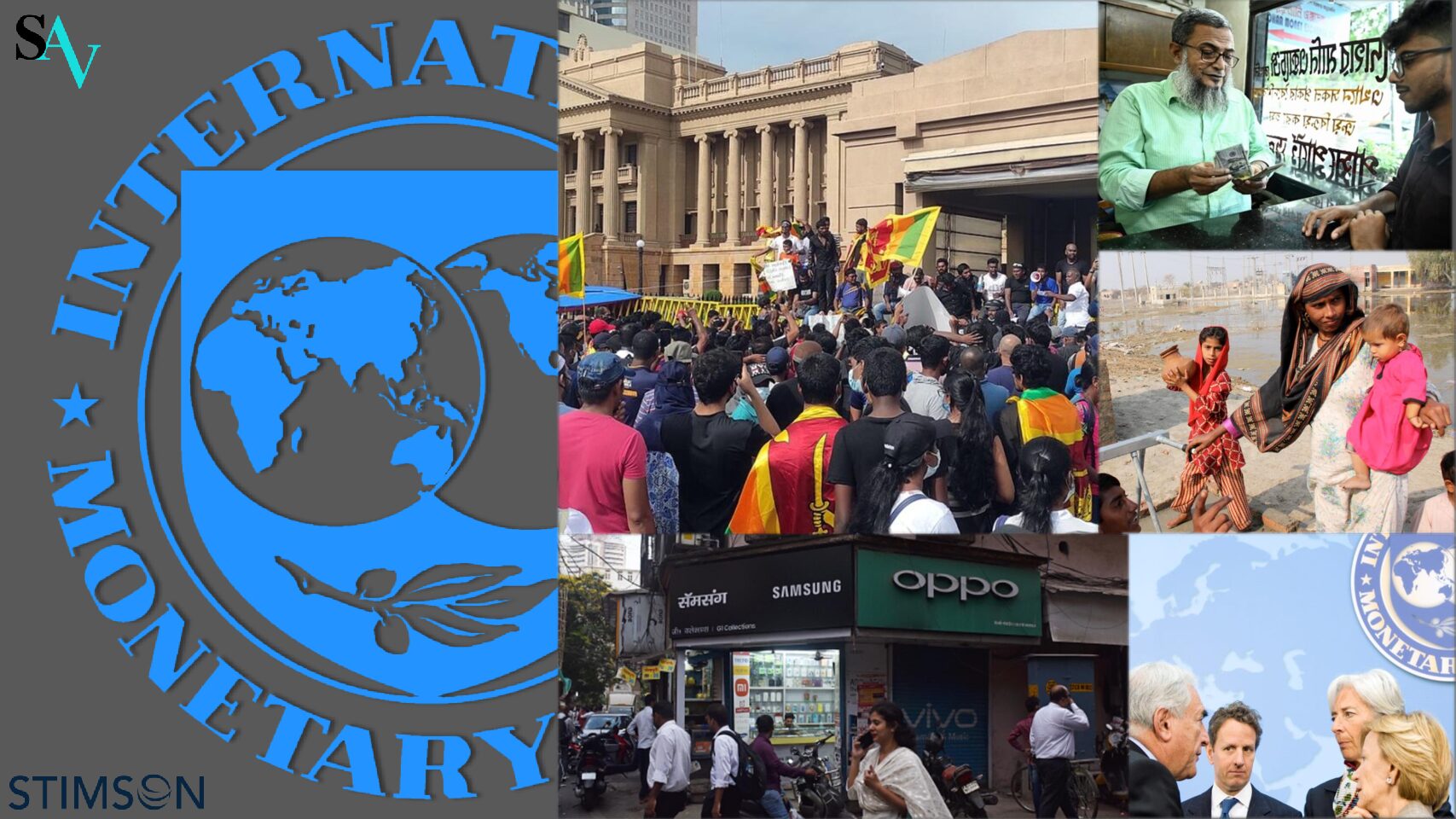
The International Monetary Fund has remained a critical actor in shaping South Asia’s economic evolution following the end of World War II. Nascent South Asian states integrated their localized economies with global markets and increased their international trade. However, economic growth remained lackluster in many South Asian states adopting the Washington Consensus through IMF structural reforms. Today, China’s rising economic engagement in South Asia offers countries new avenues for long-term economic development. Between Washington and Beijing’s competing models of economic development, it is unclear whether tangible economic payoffs await many South Asian states.
In this series for South Asian Voices, authors analyze the IMF’s role in South Asia’s economic development and prosperity. Dr. Aasim Sajjad Akhtar critically examines the regional impact of the Washington Consensus on South Asia’s economic development through both a historical overview and an exploration of future trends. Binura Seneviratne delves into the intricate tensions arising from Sri Lanka’s recent IMF program and the concurrent surge in Chinese investments within the country, all within the broader context of great power competition. Asad Ejaz Butt argues that despite the growing politicization of the IMF in Pakistan and the subsequent trust deficit, it will not significantly impact Pakistan’s future engagement with the Fund due to economic necessity. Ashfaqul Chowdhury analyzes the domestic controversies surrounding Bangladesh’s most recent IMF, arguing that the IMF remains unpopular amongst domestic constituents. And finally, Akshobh Giridharadas highlights how India’s last bailout in 1991 was economically epochal and geopolitically significant in propelling India’s economic rise into the 21st century.
